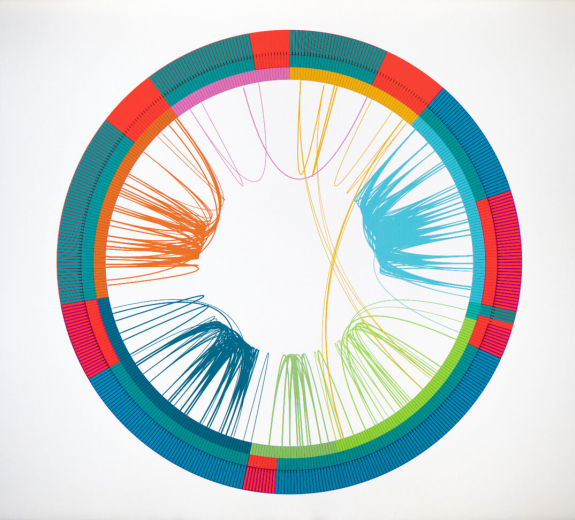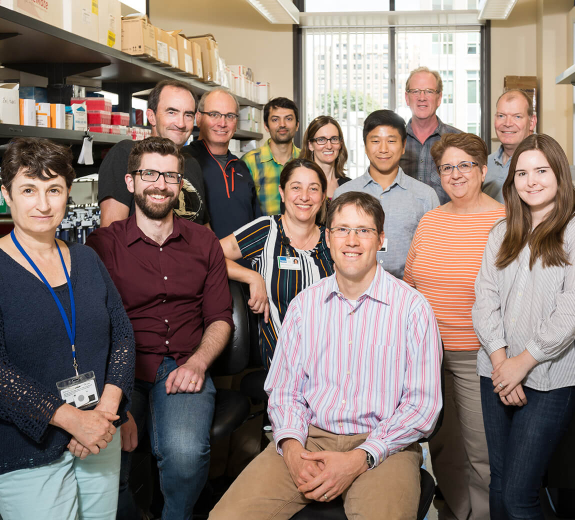“There are so many complex factors that contribute to T1D,” Dr. Long says. “The systems immunology team helps us identify which ones are important and which ones to ignore.”
Seeing the Big Picture Through Big Data
A study can involve a vast amount of information culled from blood and tissue samples. The Systems Immunology team of bioinformaticians and data specialists use the latest cloud computing tools to organize, analyze and visualize that data.
“A lot of that analysis comes down to finding patterns — this cell type in combination with that clinical data is associated with this outcome,” says Charlie Quinn, who is director of the Research Information Systems team. “Finding patterns across millions of data points is tremendously complicated, but that’s kind of our superpower.”
Having this team in-house means it can join forces with people like Dr. Long early in the research process, to be sure everyone knows which patterns to look for. This helps researchers understand autoimmune responses and investigate how to correct them.
Investigating COVID-19
Now Dr. Linsley and his colleagues are helping us unravel COVID-19. Hamid Bolouri, PhD, has been using systems immunology tools to wade through huge COVID-19 data sets since mid-March. In June, Systems Immunology faculty including Peter Linsley, Scott Presnell, PhD, and Matt Dufort, PhD, started additional COVID-19 projects.
One goal is to find markers that identify why some people with the virus don’t have symptoms while others get fatally ill. The sickest patients tend to have multiple health issues, which makes it hard to pinpoint the factors related to COVID-19.
“That is precisely why systems immunology is necessary — we can find meaningful patterns in a sea of noise and coincidence,” Dr. Bolouri says. “Once we know what the markers are, we can use them to look at the different ways the virus affects people, identify what goes wrong in their immune processes, and tailor treatments for individual patients.”
BRI’s ability to comprehensively study COVID-19 achieves the vision that Dr. Nepom and Dr. Linsley hatched back in 2012.
“We have the pieces in place to jump into action and make discoveries that can help,” Dr. Linsley says. “That’s exactly what you hope for as a scientist.”




